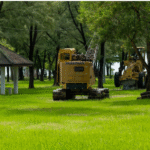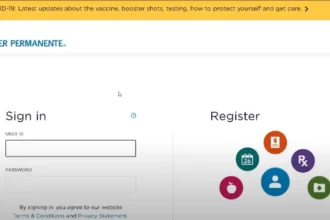Image from Unsplash
If your morning ritual involves clutching a coffee cup like a lifeline, you’re not alone. Caffeine is the world’s most popular stimulant, and it fuels everything from boardroom meetings to 5 a.m. gym sessions. But as more people begin to question its long-term effects—jittery crashes, poor sleep, and rising tolerance levels, they’re looking for smarter, more sustainable ways to stay energized. Some are turning to hydration strategies, circadian-friendly lighting, and nutrient-dense meals. Others are integrating holistic supplements into their routine, such as Better Body, which supports energy, metabolism, and mood without the caffeine rollercoaster.
Why Rethink the Coffee Habit?
While coffee has its perks, the downsides become apparent over time. The caffeine high is typically followed by an energy slump, leading to a dependency cycle. More coffee means more tolerance, which requires even higher doses to achieve the same effect. For many, this also means increased anxiety, disrupted sleep, and digestive issues.
Additionally, studies from the National Institutes of Health suggest that while caffeine can enhance alertness in the short term, chronic overuse may impact adrenal function and disrupt natural cortisol cycles, which play a vital role in our body’s natural energy production. That’s where non-stimulant-based energy strategies come in.
Hydration and Electrolyte Balance
Mild dehydration—even as little as 1–2% of body weight—can impair cognitive performance and mood. Yet many of us mistake thirst for fatigue. One of the simplest and most overlooked fixes for low energy is adequate hydration.
Water alone is good, but pairing it with electrolytes can make a big difference. Sodium, potassium, and magnesium are essential for cellular energy and nerve function. Low levels of these minerals can leave you feeling sluggish or mentally foggy.
Try starting your day with a glass of water mixed with a pinch of sea salt and a squeeze of lemon. Throughout the day, sip on infused water or an unsweetened electrolyte drink to keep your energy stable.
Circadian-Friendly Light Exposure
Our biological clocks are wired to light. Morning sunlight triggers cortisol production (the good kind), helping us feel awake and alert. Blue light exposure early in the day can boost dopamine levels and reset the circadian rhythm—but too much at night can keep us wired.
If you work indoors, invest in a light therapy box or take a mid-morning walk. By regulating melatonin and cortisol naturally, light exposure helps balance energy in a more sustainable way than artificial stimulants.
Nutrition for All-Day Energy

Image from Unsplash
Food is fuel—but not all fuel is equal. High-sugar snacks and refined carbs might give you a quick burst, but they’re followed by a crash. Instead, opt for meals that pair complex carbohydrates with protein and healthy fats. Think oats with almond butter, eggs and avocado on whole grain toast, or a quinoa bowl with roasted veggies and salmon.
These combinations provide slow-burning energy and avoid the glucose spikes that drain you later. Add nutrient-dense foods like leafy greens, fermented veggies, and berries to support gut health—an often-overlooked factor in mood and energy.
Adaptogens and Herbal Support
Adaptogens are natural compounds that help the body adapt to stress and maintain balance. Ashwagandha, Rhodiola, and holy basil are some of the most studied for energy and mental clarity. These herbs don’t overstimulate the nervous system; instead, they support resilience, which improves focus without the wired edge.
Supplements like Better Body include supportive herbs and probiotics that can aid gut health and hormonal balance—key contributors to daily vitality. Unlike caffeine, they don’t demand more from your system; they help it function better.
Movement, Not Just Exercise
Physical activity increases circulation, oxygenates the brain, and releases endorphins. But we often frame movement as an all-or-nothing concept: either we hit the gym for an hour, or we do nothing at all.
In reality, micro-movement can be more effective for energy management. Try:
- 10-minute walks between tasks
- Desk stretches
- A few yoga poses during lunch
- Taking calls while standing or pacing
These moments reset your posture, refresh your mind, and prevent the sluggishness that comes from sitting too long.
Breathwork and Mental Clarity
Breathing techniques offer instant clarity. Unlike coffee, which stimulates the sympathetic nervous system (fight or flight), breathwork can activate the parasympathetic system (rest and digest).
Techniques like box breathing (inhale for 4, hold for 4, exhale for 4, hold for 4) or alternate nostril breathing are simple, equipment-free ways to re-energize your mind. They increase oxygen flow and reduce cortisol—creating clarity without a stimulant crash.
Digital Hygiene: Managing Screen Fatigue
Screen overuse leads to eye strain, decision fatigue, and fragmented focus. Many people drink coffee not because they’re tired—but because their brains are overloaded.
Use digital tools to your advantage:
- Blue light filters after dark
- The Pomodoro technique (25 min on, 5 min off)
- Notification batching
- Time-blocking to group similar tasks
These strategies protect your mental bandwidth, so you don’t need to rely on artificial boosts to power through.
The Role of Sleep in Daytime Energy
Nothing replaces quality sleep. You can drink all the green juice in the world, but if you’re getting 5 hours of fragmented rest, fatigue will catch up. Prioritize sleep hygiene:
- Go to bed and wake at the same time
- Avoid screens 1 hour before sleep
- Use a white noise machine or blackout curtains
- Limit alcohol and heavy meals before bed
Supplements like magnesium glycinate or calming adaptogens can support sleep depth, indirectly enhancing daytime energy.
Designing an Energy-Smart Day
Energy isn’t about working harder—it’s about working smarter. Try structuring your day around your natural energy cycles:
- Morning: Hydrate, get sunlight, eat a nutrient-rich breakfast, move lightly
- Midday: Do your most mentally demanding work; break every 60–90 minutes
- Afternoon: Shift to collaborative or physical tasks; take a walk
- Evening: Wind down early, avoid caffeine after 2 p.m., prioritize recovery
By syncing with your body, not against it, you create a flow that doesn’t require artificial stimulation.
We live in a culture that glorifies the grind—but the real secret to sustained productivity is a steady, supported system. From better sleep to smart nutrition and movement, energy solutions beyond coffee are not only possible—they’re powerful. And when paired with supportive wellness strategies they create a foundation for clarity, focus, and long-term health that doesn’t fade with the last sip of espresso.
Smart energy isn’t about hype. It’s about habits. And it starts with choosing what actually fuels you.

















